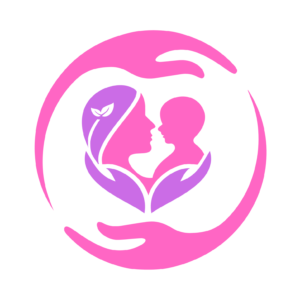Endometriosis is a condition that is quite common around the world with millions of patients suffering from it, especially women who are within the reproductive age bracket. This chronic disorder occurs when tissues similar to those found in the lining of the uterus (endometrial tissues) develop in areas outside of the uterus. These abnormal tissues have come to be known as endometriosis tissues, and they are often located on the ovaries, the fallopian tubes, and even other pelvic structures, while in rare cases, may venture outside the pelvic region altogether.
Symptoms of Endometriosis
The signs and symptoms of endometriosis are quite diverse and can be as mild as discomfort or as severe as painful disruption of one’s quality of life. Among these common endometriosis symptoms, pelvic pain, particularly during periods, is one of the most common complaints, which is unfortunate. Unlike menstrual cramps, the pain and cramps experienced during the cycle are more problematic as well as longer in duration.
Other endometriosis symptoms are highlighted as follows;
Chronic Pelvic Pain: Recurrent ache in the region of the pelvis which does not coincide with the menses.
Dysmenorrhea: It is the pain that occurs during the menses, and usually there are cramps that develop before the start of the cycle and go on even after the cycle has ended.
Dyspareunia: Pain experienced during or in the post-coital period.
Dyschezia or Dysuria: These are associated with the bowel actions and urination especially pronounced during the menstrual phase.
Menorrhagia: Heavy flow is characterized by losing all control of menses; it is presence, or there may be localized bleeding between the periods.
Infertility: Many individuals with endometriosis are infertile, as it affects the reproductive capability of the person.
General Discomfort: Complained fatigue, nausea, and a feeling of bloating and diarrhea during menstruation that can be even worse.
The symptoms may vary in frequency and severity, which depend on aggressiveness as well as locations of the endometriosis tissue.
Endometriosis causes
Endometriosis causes are still an active area of research and some causes have already been proposed so far:
Retrograde Menstrual Flow: Embryonic cells pass through the pelvic cavity with menstrual blood during periods when there are no follicles growing in the ovary.
Genetics: Family history of the condition increases the chances of endometriosis.
Immune System Dysfunction: Failure to eliminate ectopic endometrial elements due to an ineffective immune system.
Cellular Transformation: Metaplastic transformation of non-endometrial cells located outside the uterus.
Hormonal Factors: It seems that ectopic endometrial tissue is estrogen dependent.
What makes understanding the causes of endometriosis firm is the fact that it has elegancy in its causes which are multi-organ in nature.
Diagnosis and Treatment

How Endometriosis Is Diagnosed
Usually, the path to the recognition of endometriotic conditions begins with the collection of a detailed medical history and a physical examination, including the pelvic examination. However, due to the fact that this condition shares a number of symptoms with other conditions, the diagnosis itself may be based on more complex analyses and examination: Ultrasound: Although not conclusive, a transvaginal or pelvic ultrasound may assist in the identification of cysts related to endometriosis known as endometriomas. MRI Scans: Magnetic resonance imaging displays anatomical structures in exquisite detail and can help in determining the degree of distribution of the endometriosis. Laparoscopy: This is a minimally invasive surgical technique that enables direct inspection of endometriosis located in the pelvic cavity and is regarded as the diagnostic standard of the highest order. Best lady doctor in Lahore for diagnosis is Dr. Sofia Manzoor a famous gynecologist practicing in Masood hospital, Lahore. You can contact her for appointment.
Treatment for Endometriosis
In the case of endometriosis, the management is directed at preparation for pregnancy and/or improving the quality of life. Management plans may differ based on the level of the disease, severity of symptoms and patient goals. Medications Pain Relief: Many non-steroidal anti-inflammatory drugs (NSAIDs) can be used to reduce inflammation and endometriosis pain. Hormonal Therapies: Birth control tablets, progestins, and the GnRH agonists may help to minimize the cyclical hormonal variations which lead to the increased development of endometriosis.
Surgical Options
Surgery for the Excision of Endometriosis: Laparoscopic excision or ablation is considered to be the most common procedure for alleviating pain and enhancing fertility.
Hysterectomy: Some patients may further require total abdominal hysterectomy and removal of both ovaries for complete symptom management. Generally a last dependent measure especially for a woman who wants to conceive in the future.
Alternative Approaches
Acupuncture, pelvic physical therapy or certain kinds of active or diet therapies can also be done for some patients to relieve their symptoms.
Fertility Treatments
Over 25 treatments involving assisted reproductive techniques like IVF approaches are often indicated for patients with infertility of endometriotic origin.
Coping with Endometriosis
Endometriosis is a problem which has an impact on both physical aspects and emotional aspects of patients as well. Special attention should be given to the degree of advancement of the disease and methods of treatment recommended for each woman. It is affirmed that a disease which has much literature aimed at various aspects of the disease biology and treatment does not seem to have a forever cure.
Informed patients who are familiar with the symptoms, the pathology overlap and diagnosis of endometriosis, manage to direct the course of their treatment and work closely with a physician to achieve a specific proposal they are seeking.
Contact us for help
Contact Dr. Sofia Manzoor for any guidance or help related to gynecology.
Masood Hospital contact number = (042) 111 627 663
Address = Masood Hospital, Kalma Chowk, Lahore

One Response